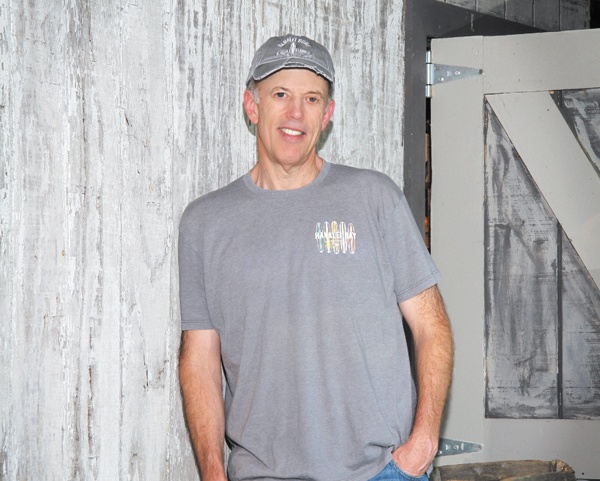Who chooses to read about dying? Often, people try to avoid the subject, rather than face it, living in denial of the inevitable. Who writes about dying? Entrepreneur, author and hospice volunteer Eric Lindner did. “I was reading a story
Who chooses to read about dying?
Often, people try to avoid the subject, rather than face it, living in denial of the inevitable. Who writes about dying? Entrepreneur, author and hospice volunteer Eric Lindner did.
“I was reading a story about Kauai Hospice in TGI last year while I was finishing the writing of my book and it gave me the idea to donate part of the proceeds from the sale of the book to Kauai Hospice,” Lindner said.
Fast forward to today and Lindner, the author of “Hospice Voices,” who divides his time between a home in Haena on the North Shore and the mountains of Warrenton, Va., is on a promotional tour of the finished book, published by Rowman and Littlefield publishing.
It was Lindner’s volunteer time he spent as a home companion for Hospice that led to his book.
“I’ve found that everyone wants to leave a legacy,” said Lindner, a home companion since 2009.
Their stories inspired “Hospice Voices” about his journey with them, sharing their insights into what matters most in life.
While it was reading about the Kauai chapter that inspired Lindner to donate his profits, he didn’t use the local chapter in his book. He said he wants to change that by volunteering here, too.
The book includes personal stories of joy and sadness, from a cross section of everyday people who were dying at home, including a 94-year-old Native American woman who, during Lindner’s visits, wanted his assistance with writing a letter to her 6-year-old granddaughter.
In another story, Lindner recalled nine months of hospice companion visits to another 94-year-old named Dolly with advanced heart disease. His trips to her home included a shared love of great food (including the two cakes he brought to her on his final visit before she died) and a lifetime of intimate memories about family love she revealed to him.
Tricia Yamashita, who was promoted in February to operations director for Kauai Hospice, knows how important Lindner’s work is for those facing death and their families. In 2013, Kauai Hospice did intakes for nearly 200 families who faced the inevitable.
“It’s all about quality of life,” says Yamashita. “And our caregivers feel honored to be called on to serve in our patients’ homes during their final hours. We’re so grateful that they trust us to take care of their loved ones.”
Kauai Hospice has grown from a small group of volunteers who started the nonprofit to a business with 23 employees and a medical doctor.
Yamashito learned about hospice a few years back when her grandmother passed away.
“I wished I’d known sooner about what hospice can do for a patient and a family and the quality of life it gives at the end of a person’s life,” she said, “Oftentimes we hear about family members who are afraid to go to the store for fear their loved ones will die while they are away from the home. That is why it is so important to be able to always tell others ‘I forgive you,’ and ‘I love you.’”
Lindner is donating 100 percent of the profits from “Hospice Voices” to hospice patients, families and charities, including Kauai Hospice and a handful of other organizations committed to improving the lives of patients and their families.
Lindner said his book has not only allowed him the opportunity to pass along wisdom from his dying patients, but has brought him closer to his own aging parents as well. He said one of the saddest things he had seen during his time is the estrangement amongst people who are loved ones in name only, and one of the best things he saw was the renewing of bonds.
“My father has always been a quiet man when it came to sharing emotions,” said Lindner, “Now every time we talk by phone he always signs off by saying, “Remember, I love you.”
• Lisa Ann Capozzi is a features/education reporter and can be reached at lcapozzi@thegardenisland.com.


